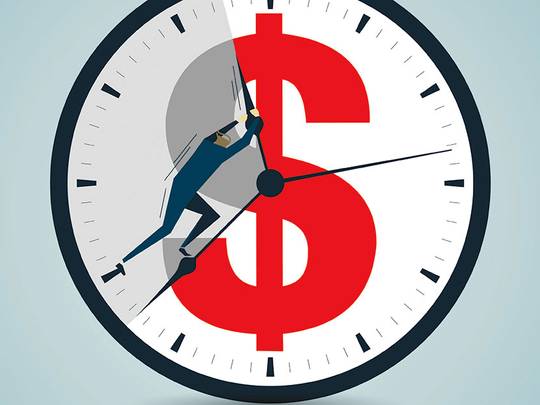
UAE residents tend to take out personal loans to service essential and emergency cash needs and when they have some surplus funds will often pick a quicker repayment route to shorten the life of their borrowing. To pay early or not largely depends on individual preferences and financial capacity. However, experts say prepayment (complete or partial) allows customer to make savings.
In the UAE, there is usually no lock-in period attached to early payment, which means customers are free to choose when to settle their liabilities. “A borrower has the flexibility to prepay his loans whenever he deems necessary,” says Devendar Agarwal, Director and Business Head — Credit Cards, Loans and Mortgages at Citibank Middle East and North Africa. “There is no set formula as to when one should prepay their loan; this usually depends on one’s cash flows and liquidity.”
Waleed Barhaji, Business Head of Consumer Finance at Noor Bank, says, “Whether the customer prepays in the first month or in the 36th, paying ahead of schedule will result in savings in the form of lower interest/profit paid for the remainder of the finance.”
Early repayment
The earlier repayments are made in a finance cycle, the higher the savings that can be achieved because the profit rate/interest cost is highest at the beginning of the finance cycle, he says. For example, if you take a personal finance of Dh150,000 at an annual percentage rate of 7.5 per cent and want to repay it over 36 months, your monthly instalment would be Dh4,679 and total repayment amount will be Dh168,450. This means you pay a profit of Dh18,450 (Dh168,450 minus Dh150,000) over three years. If you pay it all back after six months, you save Dh11,905 even after a 1 per cent early settlement charge. If you pay off after 24 months, you save Dh2,169, says Barhaji.
Loan rules
Generally, there are no disadvantages to early payment. However, reviewing early payment terms and the borrower’s short- to mid-term financial health is crucial to ensure actual savings are made. “In the UAE, the central bank caps the prepayment charges at 1 per cent — subject to a maximum of Dh10,000 — of the outstanding balance being paid off,” says Barhaji. “However, there is always a financial advantage of paying off early.”
He says the borrower should ensure they have the financial ability to pay off the amount as a lump sum. “Being too ambitious and paying off early, only to apply for a new finance a few months later may mean you are worse off — as you would then need to pay processing fees, insurance charges, etc. again.”
Interest rate
Shehzad Hameed, Head of Retail Banking for the UAE at Standard Chartered, advises borrowers considering early payment to ensure the interest rate payable on the outstanding loan is higher than the prepayment fees associated with the settlement. “Prepayment of loans essentially allows the borrower to decrease the monthly instalments and save — minus the early repayment cost — on the interest payable on the amount being prepaid.”
Yousuf Al Suwaidi, Head of Sales and Distribution at Commercial Bank of Dubai agrees. “Prepayment will bring the principal amount down, which results in less interest cost. Prepayment also helps bring down the outstanding amount, resulting in reducing the debt burden ratio.”
- The print version of this article stated Yousuf Al Suwaidi worked with Commercial Bank International instead of Commercial Bank of Dubai. The error is regretted.












